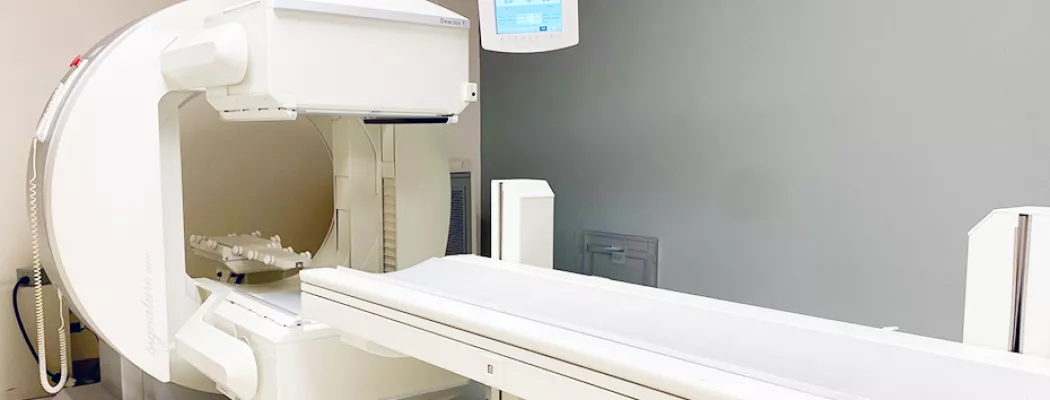
Location
Get in touch
Call: 308-630-1140
Login to MyChartWhat is nuclear medicine?
Nuclear medicine is an area of Imaging that uses small amounts of radioactive isotopes, or radiopharmaceuticals, to get pictures of a patient’s organ function and structure. Nuclear medicine exams are used to diagnose and treat many illnesses, including cancer, heart disease, bone issues, thyroid disease, gallbladder disease, or kidney disease.
Most nuclear medicine exams take about 15 minutes for the injection, and about 60 minutes for imaging. Nuclear medicine exams are scheduled from 7 a.m. to noon, Monday through Friday. Your primary care physician or provider must refer you to the nuclear medicine team.
The radioactive isotopes and drugs used in exams are created specifically for each patient and his or her appointment time. Because these drugs expire within hours, it is important to be on time for a nuclear medicine exam or let the Imaging Services department know at least one day ahead if you need to cancel or reschedule an appointment. You can cancel or reschedule by calling Scheduling Services at 308-630-2700. To reach the Imaging Services front desk, call 308-630-1140.
What to expect during a nuclear medicine exam
For a nuclear medicine exam, you first come to the Imaging Services department and receive the radioactive isotope injection. The amount of radiation in this is small, so your risk of negative radiation effects is low.
You can then leave for a period of time and return after the radioactive isotope has had time to circulate through your body. We ask you to change into a hospital gown and lie on a table, sit, or stand next to the camera. The camera will then measure the radioactivity coming from within your body. Computers create an image that shows the location where the radioactivity is coming from. Collections of the isotope will create bright spots, often called “hot spots” on the image. These hot spots may help identify abnormal functions.
During your exam, a registered radiologic technologist will care for you. The technologist is specially trained in performing nuclear medicine exams and is certified in this specialty by the American Registry of Radiologic Technologists (ARRT) or the Nuclear Medicine Technology Certification Board (NMTCB).
A board certified radiologist who specializes in interpreting nuclear medicine will examine the completed images. They will send the report directly to your physician or provider, who will contact you with the results.